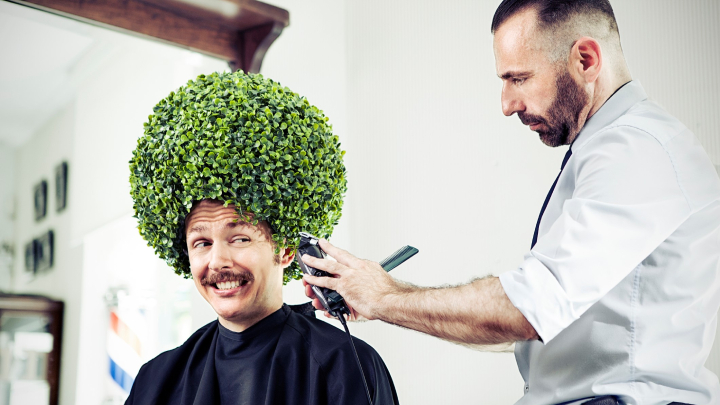It’s been said that men think about sex once every seven seconds. However, this has not been verified and is still up for debate. What we do know however, is...
Hair Loss in Men – Can it be treated?
Hair loss is not considered a disease, but rather a natural condition that occurs with age. In males, balding and hair loss can be caused by a combination of genetics, hormonal changes and aging.
Male pattern baldness occurs slowly, beginning around 20 to 30 years of age in most men. Initially men will notice hair becomes thinner and shorter before complete balding. In most cases complete hair loss, otherwise known as balding, begins with a receding hairline along the forehead and loss of hair at the top of the scalp.
Genetics from both parents as well as hormonal changes are largely responsible for male pattern baldness. Every single hair strand stems from a hair follicle on the scalp. These hair follicles provide nutrients, hormones and blood to help encourage hair growth. These hair follicles have an affinity to a hormone called dihydrotestosterone (DHT), unfortunately, DHT encourage hair loss. As men age, some of the body’s testosterone is converted into the DHT. High levels of DHT within the bloodstream interact with hair follicles, causing follicles to shrink. This results in shorter and thinner hair, and eventually hair loss.
Treatments for hair loss include medications that encourage hair growth or reduce hair loss. Some of these medications work by reducing DHT hormone production, commonly known as “DHT blockers”, to reduce or slow down hair loss. Other medications help increase the supply of blood to the scalp, encouraging hair growth and slowing down the loss of hair. Many of these medications can impact other parts of the body, such as the prostate gland. Unwanted side effects including hormonal fluctuations, sex drive changes and erection complaints are just some of the reasons most men usually seek alternate options for hair loss. Cosmetic hair transplants are another option for men who want to maintain a full head of hair but can be costly.
Natural supplements such as saw palmetto, fenugreek seeds and phytosterols naturally help to reduce DHT production, addressing the underlying hormonal changes that lead to hair loss. Other herbs such as gingko biloba leaf and rosemary can help support blood flow to the scalp, encouraging healthy hair growth. With so many safer and natural options, it’s no surprise that men will give these a try. Many of these supplements work to slow down the process of hair loss and help keep the hair that is currently on the scalp healthy. This can reduce hair thinning, shortening and loss overall.
Related Posts
BPH: a men’s health issue
Bell LifestyleDecember 16
Prostate health is
an important men’s health topic. The prostate is a specialized gland that is
part of the male urinary system. Its main role is to produce...
Bell Lifestyle Products announced today the release of their
new Immune Support product for the Canadian market. This product joins a
comprehensive family of...
BPH: a men’s health issue
Bell LifestyleDecember 16
Prostate health is an important men’s health topic. The prostate is a specialized gland that is part of the male urinary system. Its main role is to produce...
Bell Lifestyle Products announced today the release of their new Immune Support product for the Canadian market. This product joins a comprehensive family of...
Categories
- Allergy Relief
- Bell Lifestyle News
- Brain and Vision Health
- Depression
- Digestive Health
- Eating Healthy
- Energy Boosts
- Fitness
- Foods for Energy
- Heart and Lung Health
- Herbs
- Immune System Support
- Lifestyle
- Men's Health
- Mental
- Motivation
- Natural Remedies
- Nutrition
- Pain Relief
- Physical
- Recipes
- Relationships
- Sexual Health
- Skin and Hair Health
- Sleep Health
- Social
- Stress Relief
- Uncategorised
- Videos
- Weight Management
- Women's Health
- Your Wellness Now
Follow us on Twitter
#90 Bladder One for Women™ is a convenient one-a-day capsule for urinary tract health, featuring herbal extracts in… twitter.com/i/web/status/1…
May 2023Urinary tract infections - UTI: To treat or prevent? That is the question. Find out more about causes and treatme… twitter.com/i/web/status/1…
May 2023"How you feel is very important to how you look. Healthy equals beautiful." - Victoria Principal #womenshealth https://t.co/OPShoEbOXb
May 2023
© Copyright 2025. All rights reserved.





